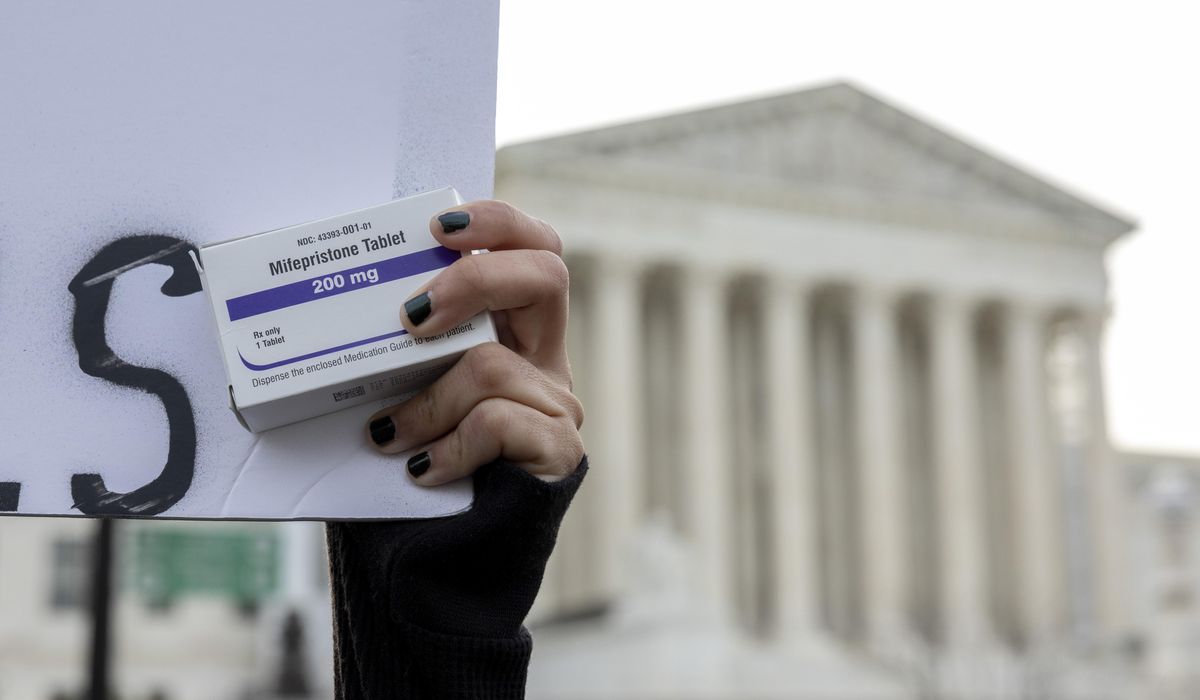


A new study reveals that most mail-order abortion pills have flowed into states that ban pregnancy termination, alarming pro-life advocates who want the Trump administration to stop it.
Three University of Texas at Austin researchers reported this week that 99,283, or 84%, of 118,338 U.S. abortion pill prescriptions that the nonprofit Aid Access filled from July 1, 2023, to Sept. 30, 2024, went to counties in 24 states that have banned women from terminating most pregnancies.
States with the highest mail-order abortion rates per 10,000 childbearing-age women during the 15 months studied included: Alabama, Louisiana, Mississippi and Texas.
“This clearly shows that groups like Aid Access are blatantly violating the state laws of multiple states and then hiding behind shield laws to avoid any liability,” Dr. Christina Francis, an Indiana-based OB-GYN and CEO of the American Association of Pro-life OBGYNs, said Thursday.
The study noted that Aid Access, the only organization shipping abortion pills to all affected states during the period, leveraged the shield laws allowing doctors to write prescriptions for women in abortion-restricting areas after an online visit.
Eight states have enacted laws specifically protecting telehealth abortion providers regardless of where their patients live: California, Colorado, Maine, Massachusetts, New York, Rhode Island, Vermont and Washington.
Published Monday in the Journal of the American Medical Association, the findings come as the Trump administration and Republican-led Congress have evaded pleas from pro-life activists to stop doctors in these states from funneling abortion pills to conservative areas.
“Faster, please,” said Michael New, a professor of social research at The Catholic University of America and affiliated scholar at the pro-life Charlotte Lozier Institute. “Placing limits on chemical abortions needs to be a top priority for pro-lifers.”
Medication abortions, also known as chemical abortions, involve a two-drug regimen of mifepristone and misoprostol. The pro-choice Guttmacher Institute estimates that the regimen was used in 63% of abortions reported in the U.S. in 2023, up from 53% in 2020 and 24% in 2011.
Legal experts say there is nothing to stop the Trump-led Food and Drug Administration from reversing a Biden-era policy that has allowed women to obtain the pills without an in-person medical examination.
The Biden administration imposed the policy after the Supreme Court ruled in 2022 to return jurisdiction over abortion to the states, leading abortion clinics to shutter in areas that banned the procedure.
“Restoring the previous safeguards needs to happen as soon as possible,” said attorney Erik Baptist, director of the Center for Life at Alliance Defending Freedom, which has sued to overturn the FDA policy. “Every day, more lives are lost and more women are put in jeopardy because of mail-order abortion drugs.”
Pro-life lawsuits have argued that the Comstock Act of 1873 should block mail-order abortion pills from crossing into conservative states. The act is a federal law against transporting obscene material.
Abortion foes have also lobbied Congress to restrict mail-order pill access, so far without success.
Mary Ziegler, a leading historian of the legal abortion debate, said a new Trump FDA rule applying the Comstock Act to abortion pills would raise the stakes for various pro-life lawsuits invoking it.
“That could force the courts to clarify the law, but we don’t know if they want to do that,” said Ms. Ziegler, a law professor at the University of California, Davis. “We haven’t heard anything on it from the Trump administration, despite pro-life efforts to get mail-order pills banned.”
The Washington Times reached out to the Trump administration for comment.
Since returning to the White House in January, Mr. Trump has insisted on letting states decide abortion policy. He also signed legislation last month that stripped federal funding from Planned Parenthood, the nation’s largest provider of surgical abortions.
He has remained silent about the rising tide of mail-order abortion pills crossing state lines, however.
This week’s study found that telemedicine abortions were highest in the South and Midwest, in high-poverty areas and counties located more than 100 miles from the nearest abortion clinic.
The remaining 16% of online prescriptions for abortion drugs went to counties in the 26 states where abortion remains broadly legal.
“It is clear from this study that people are successfully overcoming abortion bans through use of telemedicine abortion,” said Suzanne Bell, a professor of population, family and reproductive health at the Johns Hopkins Bloomberg School of Public Health.
Josh Blackman, a constitutional law professor at South Texas College of Law in Houston, said the study shows that legislative efforts to block abortion pills from entering his state and Louisiana “have proved unsuccessful.”
“It seems that pregnant women, even in conservative states, can still access abortion drugs,” Mr. Blackman said Thursday. “And there does not seem to be much of an appetite to prosecute any crimes at the federal level.”
• Sean Salai can be reached at ssalai@washingtontimes.com.
